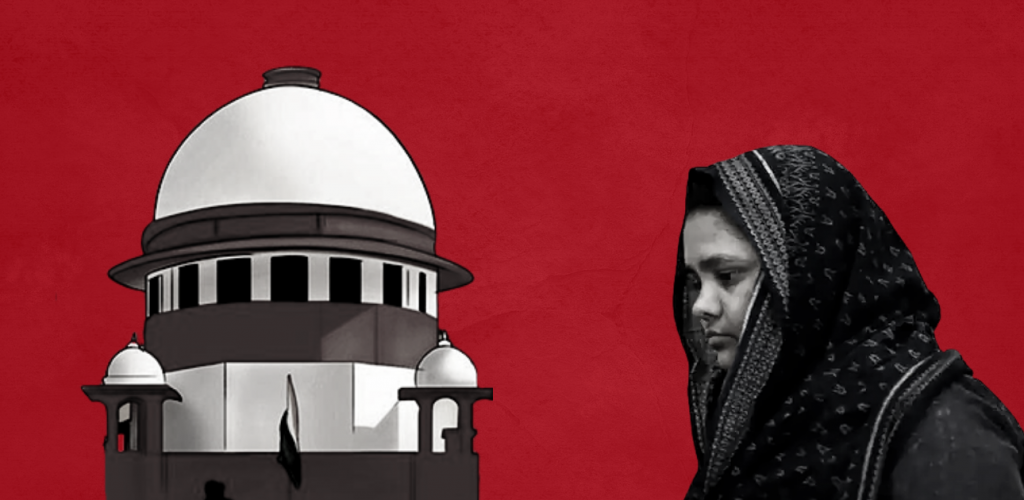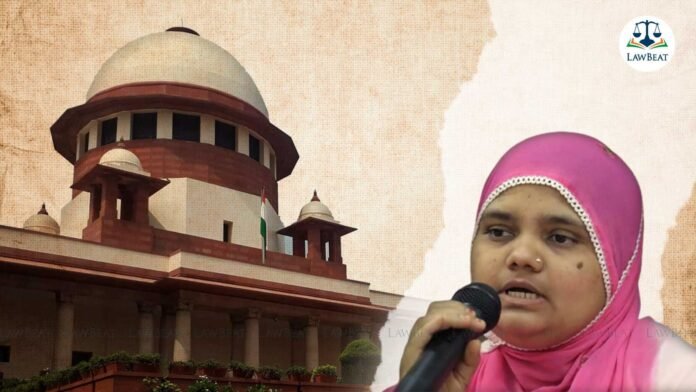In a landmark ruling, the Supreme Court has overturned the Gujarat government’s decision to grant remission to 11 convicts in the Bilkis Bano case. The apex court emphasized that the authority to decide on remission lies with the state within whose jurisdiction the accused were sentenced, in this case, the Maharashtra government, and not the state within whose territorial limits the offense was committed.
The Bilkis Bano case dates back to the horrific incidents during the 2002 Gujarat riots, where Bilkis Bano, a pregnant woman, was gang-raped, and her family members were brutally murdered. The case gained national and international attention as a symbol of the heinous crimes committed during the communal violence.
The Gujarat government’s decision to grant remission to 11 convicts had sparked controversy and raised concerns about justice being compromised. The Supreme Court’s intervention in this matter is a significant step towards upholding the principles of justice and ensuring that the legal process remains impartial.
In its ruling, the Supreme Court clarified that the appropriate government to decide on remission is the state where the accused were sentenced, i.e., the Maharashtra government. This decision is rooted in the legal principle that the sentencing state holds the authority to decide on matters related to the punishment and release of convicts.
All About Court’s Decision
The court’s stance reflects a commitment to ensuring that legal processes are followed meticulously, upholding the integrity of the justice system. By overruling the Gujarat government’s decision, the Supreme Court reinforces the idea that justice should not be subject to political considerations and must be administered without bias.

The Bilkis Bano case has been a symbol of the fight for justice and accountability. Bilkis Bano, resilient in her pursuit of justice, became a symbol of hope for survivors of communal violence. The Supreme Court’s decision to overrule the remission granted to the convicts is a testament to the enduring quest for justice in cases that resonate with the collective conscience of the nation.
This ruling also underscores the role of the judiciary as the guardian of justice, ensuring that legal processes are not manipulated for political or other extraneous considerations. The separation of powers and the independence of the judiciary are fundamental pillars of a robust democracy, and the Supreme Court’s intervention in this case upholds these principles.
The legal fraternity has welcomed the Supreme Court’s decision as it reaffirms the sanctity of the judicial process and prevents any undue interference that may compromise the pursuit of justice. The ruling serves as a precedent, setting clear guidelines on the jurisdiction of the appropriate government in matters of remission, particularly in cases with inter-state implications.
The Bilkis Bano case, beyond its legal dimensions, also holds a mirror to the society’s commitment to justice, human rights, and the protection of vulnerable communities. The Supreme Court’s intervention not only corrects a legal anomaly but sends a powerful message about the nation’s commitment to upholding justice, especially in cases that involve crimes against humanity.
The Supreme Court’s intervention in the Bilkis Bano case sets a precedent for similar cases where the jurisdiction of the appropriate government for matters of remission might come into question. This landmark decision reaffirms the judiciary’s commitment to upholding the rule of law and ensuring that legal processes remain untainted by external pressures.
Moreover, the ruling sends a strong message about accountability and the need for justice in cases that involve mass atrocities. The Bilkis Bano case, with its horrifying details, stands as a testament to the resilience of survivors seeking justice. By overruling the remission granted to the convicts, the Supreme Court acknowledges the gravity of the crimes committed and the imperative to hold the perpetrators accountable.
The legal battle surrounding the Bilkis Bano case also highlights the challenges faced by survivors in their pursuit of justice. Bilkis Bano’s courage and determination to seek justice despite numerous obstacles underscore the need for a robust legal system that supports survivors and ensures that the guilty are held accountable for their actions.
As the case continues to unfold, it prompts a broader societal conversation about the need for comprehensive legal reforms and systemic changes to address and prevent communal violence. The Bilkis Bano case has become a rallying point for human rights activists, legal experts, and concerned citizens advocating for a more just and inclusive society.

